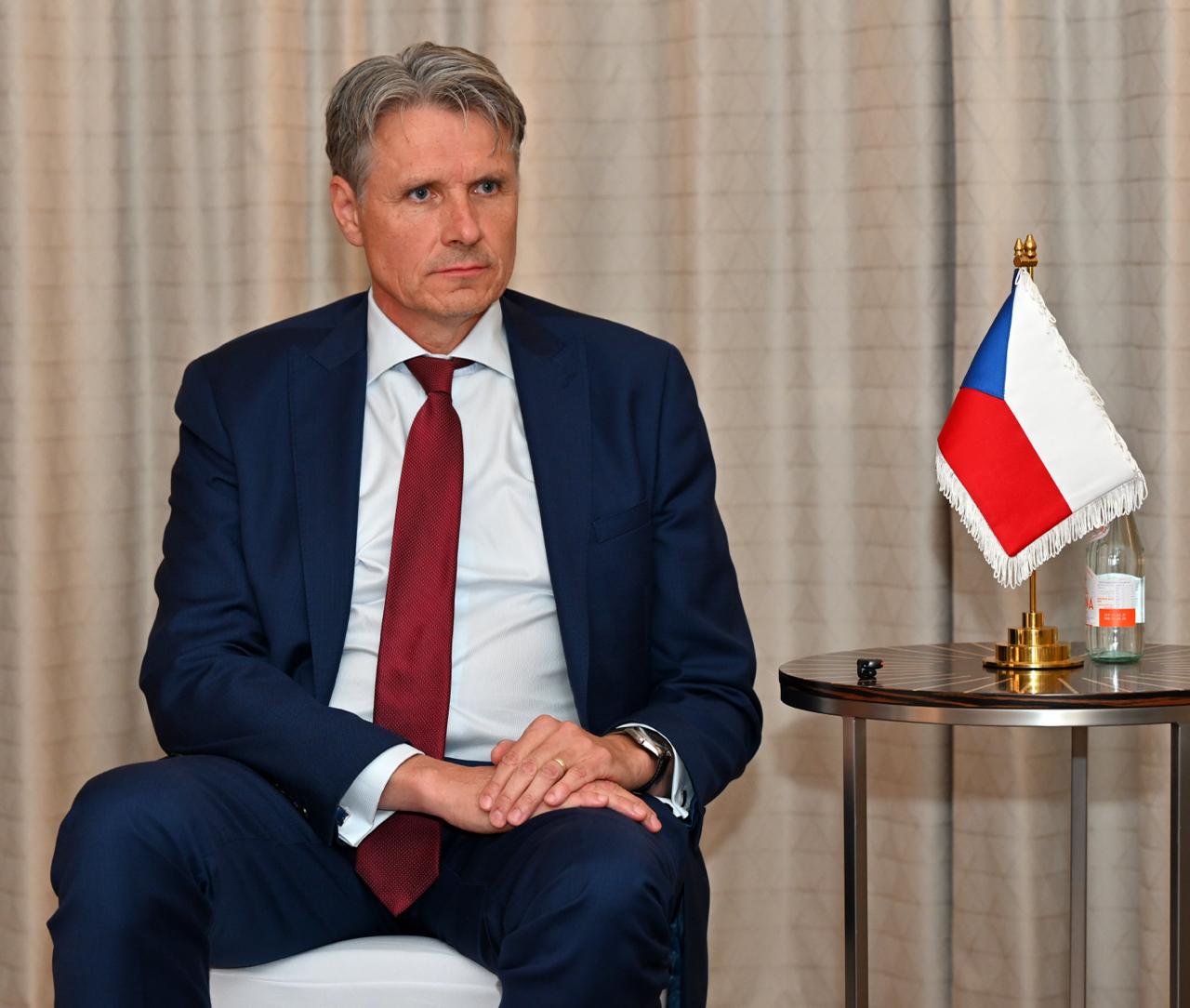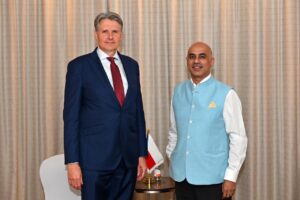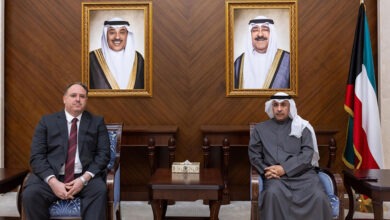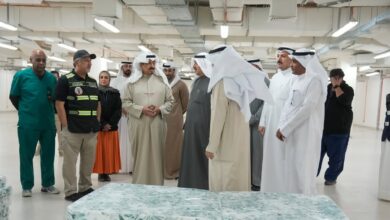
By Reaven D’Souza
Executive Managing Editor

The 29th GCC-EU Joint Ministerial Meeting, held in Kuwait, marked another significant step forward in deepening relations between the Gulf Cooperation Council (GCC) and the European Union. Delegates from across Europe and the GCC convened to discuss a wide range of strategic issues, from international politics to economic cooperation and regional development.
Speaking after the meeting exclusively to The Times Kuwait the Czech representative H.E Radek Rubeš, State Secretary (equivalent to deputy minister), Ministry of Foreign Affairs expressed strong appreciation for the event’s organization and its outcomes.
“First of all, I think it was very well organized by the Kuwaiti side, and we are grateful to the host country for bringing us together,” the official said adding “It’s always important to exchange views in such a forum where we can speak openly and align our positions on key issues.”
A Platform for Real Dialogue
The meeting covered critical topics including international diplomacy, regional security, economic reforms, and development within the GCC. According to the Czech official, one of the most valuable aspects of the conference was the opportunity to engage in transparent discussions that brought the EU and GCC countries closer in terms of policy alignment and shared strategic priorities.
Rubeš further stated, “These meetings are crucial because they allow us to deepen our mutual understanding without barriers. We are clearly seeing our positions converge,”
Czech Support for GCC Aspirations
The Czech Republic reaffirmed its support for the GCC’s long-standing aspiration to achieve visa-free travel to the Schengen Area. While noting that the issue must be decided collectively by all 27 EU member states, the Czech representative emphasized that the matter is being seriously discussed at the EU level in Brussels.
“We certainly support the GCC countries’ ambitions regarding visa liberalization,” the official said. “However, this is an EU-wide decision, and the discussions are ongoing.”
Consensus and Cooperation
A key takeaway from the meeting was the growing consensus between the two regions on many global and regional challenges. The Czech representative highlighted the alignment of views on various international political developments, underscoring the constructive nature of the dialogue.
“There was consensus on many subjects,” the official confirmed. “The positions of both GCC and EU countries are, in many ways, becoming more and more aligned.”
Looking Ahead: Economic and Business Collaboration
Beyond politics, the conference also opened doors for future economic and business cooperation. The Czech Republic expressed strong interest in fostering deeper ties between the private sectors of both regions.
“We believe that after such meetings, cooperation becomes much easier,” the representative noted. “We are eager to bring our people and our business communities together to explore opportunities.”
On the Horizon: Agreements in Progress
While no formal agreements were signed during this session, discussions are ongoing regarding several memorandums of understanding between the GCC and the EU. The Czech official noted that while talks are advancing, it is still too early to announce any finalized agreements.
Bilateral relations between Kuwait and the Czech Republic stand on a strong historical foundation, marked by mutual respect and longstanding cooperation. Today, both countries are exploring new avenues to strengthen political dialogue, economic cooperation, and investment opportunities in line with Kuwait’s Vision 2035.
Radek Rubeš further highlighted the enduring friendship between Kuwait and the Czech Republic and outlines promising prospects for deepening cooperation. From growing Kuwaiti investments in Czech real estate and technology to potential Czech contributions in food security, defense, and high-tech innovation, the state secretary underscored the many ways the two nations can work together for mutual growth — while reaffirming their shared commitment to stability, development, and peace in the wider region.
On the development of bilateral relations with Kuwait, the deputy minister said they were built on a solid ground: former Czechoslovakia was one of the first countries to recognize independent Kuwait in 1961, just two years after, in 1963, bilateral diplomatic relations were established, and it took only two more years to open Czech Embassy in Kuwait.
The Czech chemical unit also helped during the process of liberation of Kuwait in 1990-1991. The solid ground provides great space for deepening the relations, both on the political and the business levels.
He further noted that there were a lot of opportunities for private investments, i.e. in real estate in Prague or in the spa areas as Czechia offers wonderful green areas, forests, mountains, historical cities, natural resources, excellent cuisine and shopping opportunities.
In short, its geographic position and also unique landscape, tradition, rich history, healthy (business) environment, mild climate, high safety and quality of life are very attractive for foreign businessman.
Besides investments in real estate, Czechia also offered a broad spectrum of interesting investment opportunities in in venture capital focusing on new technologies, IT, cybersecurity, research i.e. in medical or energy sector. Czechia is traditionally one of the most industrialized countries within the EU and its educated people represent great bond for future development and investments. Kuwait and Czechia also signed bilateral Investment Treaty, which helps a lot.
On Czech contributing to Kuwait’s food security, he said that Czechia was ready to help from wastewater treatment systems to nutritional supplements, Vafo granules, feed mixtures enriched with vitamins and minerals, innovative technologies in agriculture, live cattle. He pointed out however that Kuwait worked hard to stay safe and to dodge any potential food security situation.
On defense and security, the state secretary said Czechia was one of the strongest manufacturers and exporter in the security sector and there have been numerous meetings with Kuwaiti side. We can offer unique and innovative technologies, he pointed out.
During the first quarter of 2026, he said that political consultations were expected to take place in Prague. Also, Minister of Foreign Affairs, H.E. Abdullah Ali Al Yahya has received an invitation from the Czech counterpart, H.E. Jan Lipavský to visit Czechia.
In conclusion he said that the Czech Republic has welcomed the peace plan introduced by president Trump. The world wants the peace in Gaza. We hope that Hamas will accept all parts of the peace plan.
Follow The Times Kuwait on
X, Instagram and Facebook for the latest news updates












